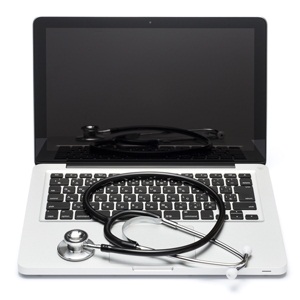
We’ve all turned to Wikipedia for advice at some point in our lives. Indeed, some of you probably end up there almost every day at some point. Unfortunately, a good deal of what you’re reading could be hogwash, a new study has suggested.
The study focused on the 10 costliest conditions in terms of public and private expenditure, including lung cancer, depression and diabetes. The information from Wikipedia articles on these conditions was then compared to that contained in peer-reviewed medical literature. The investigators found that 90% of the articles contained false information.
Read: STI's: avoid a doctor's visit
There are well over 20 000 medical articles on the English version of Wikipedia and the site was visited by 116 million people in September 2013, the last date for which statistics are available. This makes it the most popular general reference body in the world.
While false information is not a problem in itself. The researchers point out that this information could negatively affect the diagnosis and treatment of diseases. The impact of using incorrect information in these processes could vary from mildly irritating to potentially life-threatening depending on the illness.
More worryingly though, is who the authors of the study were talking to. While humans have developed a penchant for self-diagnosis, especially in the internet era. Another recent study showed that half of medical practitioners had admitted to using Wikipedia as a reference source. The authors were highly concerned that the false information contained in these articles was being used to diagnose and treat large numbers of patients.
Read: Do you need a doctor or a midwife?
For their part, the site is working with accredited organisations like Cancer Research UK to conduct thorough reviews of their medical articles. The problem still lies, though, in the fact that information written by a Nobel prize-winning doctor can be edited by a meddlesome teenager or those looking to push a certain agenda.
The message from the study is clear. Don’t trust the internet with your health. If you think something is wrong, visit your GP (and check that they aren’t using Wikipedia).
Sources: Time/Independent/Journal of the American Osteopathic Association
Read more:
How to diagnose
Toilet diagnosis 101
Electronic diagnosis under fire




 Publications
Publications
 Partners
Partners









